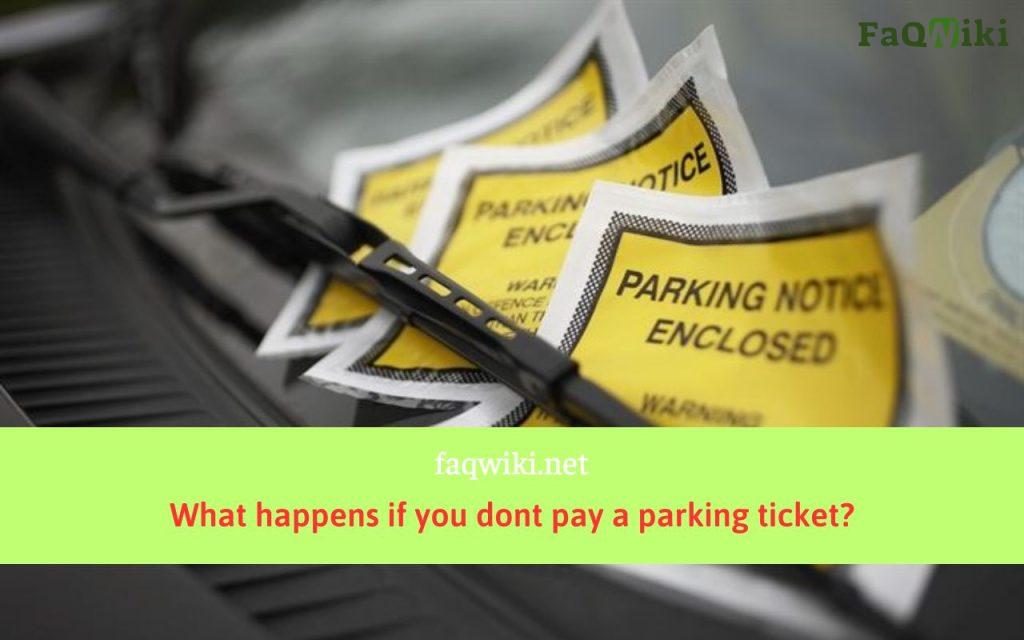What happens if you dont pay a parking ticket?

What happens if you dont pay a parking ticket? Parking tickets are a common and sometimes frustrating occurrence for many drivers. They are issued by local governments to enforce parking regulations and generate revenue. It is important to pay your parking ticket on time to avoid additional fees and legal consequences. If you do not pay your parking ticket, there can be serious consequences, including increased fines, impounding of your vehicle, suspension of your driver’s license, and even possible jail time.
First Offense

What happens if you dont pay a parking ticket?
If you receive a parking ticket, you typically have a set timeframe to pay the ticket, which can vary by location but is usually around 30 days. If you pay the ticket on time, you will avoid any additional fees or penalties. However, if you fail to pay the ticket on time, you may face penalties and consequences.
One of the penalties for late payment is an increase in the fine amount. The longer you wait to pay, the higher the fine will be. In addition to the increased fine, you may also face additional fees and penalties, such as late fees or administrative fees.
If you continue to ignore the parking ticket, you may be summoned to court. At the hearing, you will be required to either pay the ticket or contest it. If you choose to contest the ticket, you may need to hire a lawyer or represent yourself. The outcome of the hearing will depend on the evidence presented and the judge’s decision.
Second Offense
If you are a repeat offender and have not paid your parking tickets in the past, the consequences can be more severe. The penalties for not paying a parking ticket increase with each offense. For example, the fine amount may increase, and you may face a suspension of your driver’s license or the impounding of your vehicle.
In some cases, if you continue to ignore the parking ticket, a warrant may be issued for your arrest. This is usually only done if you have several outstanding parking tickets or if you have a history of not paying them.
Collections and Credit Report
If you do not pay your parking ticket, the local government may transfer the ticket to a collections agency. This can have a negative impact on your credit score and make it difficult to obtain loans or credit cards in the future. It is important to pay your parking ticket on time to avoid these consequences.
Legal Action
If you continue to ignore your parking ticket, legal action may be taken against you. This can include increased fines and fees, the possibility of jail time, and an impact on your criminal record. It is important to take parking tickets seriously and pay them on time to avoid these consequences.
Out-of-State Parking Tickets
If you receive a parking ticket in another state or country, you may still be responsible for paying it. Many states and countries have cross-border agreements to enforce parking regulations. If you receive an out-of-state parking ticket, it is important to handle it in a timely manner to avoid additional fees and legal consequences.
To handle an out-of-state parking ticket, you should contact the issuing agency to find out your options for payment. If you ignore the ticket, it may be transferred to a collections agency or result in the suspension of your driver’s license in that state.
Conclusion
In conclusion, not paying a parking ticket can have serious consequences, including increased fines, impounding of your vehicle, suspension of your driver’s license, and even possible jail time. It is important to pay your parking ticket on time to avoid these consequences. If you are unable to pay the ticket in full, you should contact the issuing agency to explore options for payment plans or extensions.
It is also important to handle out-of-state parking tickets in a timely manner to avoid additional fees and legal consequences. Remember, parking tickets are issued to enforce parking regulations and generate revenue for local governments. By paying your parking ticket on time, you can avoid additional fees and legal consequences, and help support your local community.
FAQs
Can I contest a parking ticket?
Yes, you can contest a parking ticket by requesting a hearing in court. However, the outcome of the hearing will depend on the evidence presented and the judge’s decision.
What happens if I ignore a parking ticket?
If you ignore a parking ticket, the consequences can be severe, including increased fines, impounding of your vehicle, suspension of your driver’s license, and even possible jail time.
Can an out-of-state parking ticket affect my driving record?
Yes, an out-of-state parking ticket can affect your driving record, and may result in the suspension of your driver’s license in that state.
What happens if I can’t afford to pay my parking ticket?
If you are unable to pay your parking ticket in full, you should contact the issuing agency to explore options for payment plans or extensions. Ignoring the ticket can lead to increased fines and legal consequences.
How long do I have to pay a parking ticket?
The timeframe to pay a parking ticket varies by location, but is usually around 30 days. It is important to pay the ticket on time to avoid additional fees and penalties.
Can a parking ticket affect my credit score?
Yes, if a parking ticket is sent to a collections agency, it can have a negative impact on your credit score and make it difficult to obtain loans or credit cards in the future.
